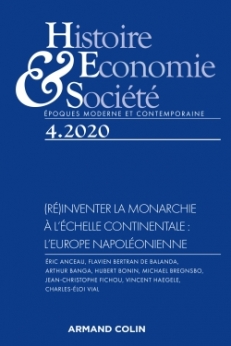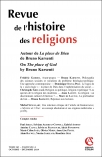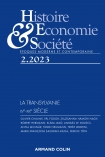
Histoire, Economie et Société (4/2020)
Pour acheter ce numéro, contactez-nous
Recevez les numéros de l'année en cours et accédez à l'intégralité des articles en ligne.
En 1819, à la veille de son entrée dans la carrière parlementaire sous la Restauration, Benjamin Constant prononçait à l’Athénée Royal une célèbre conférence sur la liberté des Anciens comparée à celle des Modernes. Le texte agit à la fois comme un condensé de la pensée constantienne et comme une véritable somme programmatique du premier libéralisme français. Cette relecture le replace dans son contexte historique et intellectuel, interrogeant à nouveaux frais la vision qu’a Constant du rôle du citoyen dans la Cité, de la définition de la liberté individuelle, de la limitation de l’intervention étatique, du libre-échange économique. Ses analyses témoignent d’une exégèse lucide du monde nouveau qui émerge alors, et prophétise par bien des aspects notre modernité dans ses enjeux les plus contemporains.
In 1819, on the eve of the beginning of his parliamentary career under the French Restoration, Benjamin Constant gave a famous lecture at the Athénée Royal on the freedom of the Ancients compared to that of the Moderns. The text acts both as a digest of Constant’s thought and as a true programmatic summation of the first kind of French liberalism. This rereading places it in its historical and intellectual context, questioning a new Constant’s vision of the role of the citizen in the City, the definition of individual freedom, the limitation of State intervention, and free trade. His analyses bear witness to a lucid exegesis of the new world that was emerging at the time, and in many ways foreshadows our modernity in its most contemporary issues.

